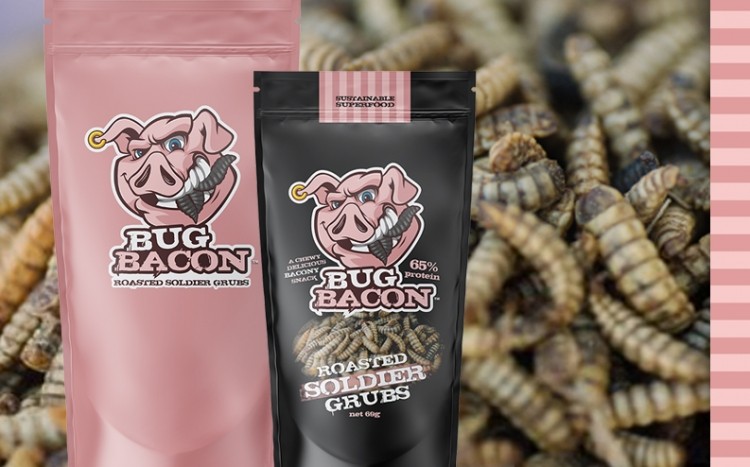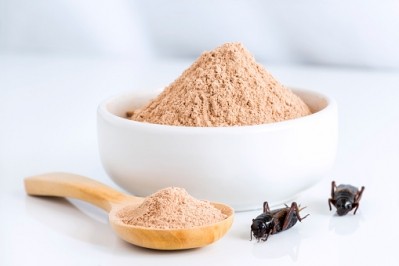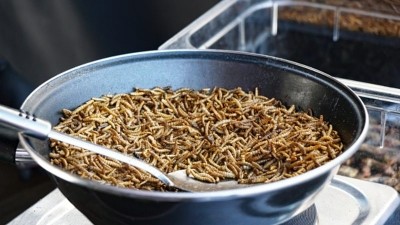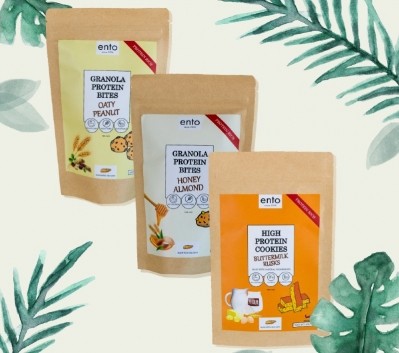‘Mainstream by 2030’: Bug Bacon founder optimistic of insect protein’s mass appeal

The product comes with plant-based vegan bacon seasonings including sweet maple, BBQ, and spices.
Founder Josh Galt told FoodNavigator-Asia, the intention was to develop a product that not only tastes, but also has the same mouthfeel as pork bacon.
He added he hoped to overcome concerns around edible insects by creating a product that consumers were familiar with.
According to Galt, the company chose to launch in Cambodia for two reasons. First, it hopes to tap on the feedback from the many Asian and Western tourists visiting Cambodia to get a diverse and broad database of insights.
“These are generally people who are both open-minded to insect foods, and many of them are also tasting bugs for the first time, so we thought it’d be the ideal testing ground before launching the product globally.”
Secondly, the company's supplier of black soldier fly grub come from Malaysia’s Unique Biotech, “which is close by regionally, so it was a nice setup.”
Unfortunately for the company, they launched the product at Bugs Café, an insect restaurant in Siem Reap, Cambodia, just as tourism nosedived in February.
Going mainstream
Despite the setback, Galt is optimistic of future growth, arguing that insects are a healthier alternative to meat, and more nutritious than a purely plant-based diet.
Galt said insects contain vitamin Bs, omega-3, omega-6, zinc, calcium and iron, which he claimed could often be lacking in plant-based diets.
“Insects also use exponentially less water, feed, energy, and land than the production of an equal quantity of meat protein, and release virtually zero greenhouse gas emissions,” he added.
In addition, the frass (insect poop) can also be used as organic fertiliser for fruits and vegetables, creating a zero-waste circular system.
He believed the insect food market will continue to grow at slow and steady pace over the next few years, “but I anticipate that well before the end of the decade, insects as food will reach a tipping point with health-conscious, sustainability-minded early adopters and will spill into the mainstream as a popular food staple.”
But before it goes mainstream, Galt is concerned that the lack of regulations could hinder the sector’s growth. “Regulation and at times the complete lack of it, has played a role in slowing down market access.”
According to him, there will also need to be a twin approach to convince consumers to experiment with such products.
“While Western consumers have distinct ingrained biases against insects, in Asia, it is more just about upward mobility and leaving the past behind.”
“So, the challenge in Asia will be convincing people to re-adopt cultural food norms which most in the growing middle class have shunned in favour of more meat-heavy diets.”
Asia has potential
China is the biggest consumer of insect foods in Asia by volume, while Thailand, South Korea and Japan are also avid consumers of fresh insects and packaged goods such as snacks or insect protein powders.
“I believe as Asia develops over the next several decades, insects are going to become an example of sustainable agriculture and demonstrate that food products can both support the UN’s Sustainable Development Goals, and taste delicious.”
“We’re now also seeing insect companies attracting the attention of very large corporate investment arms from the likes of Thai Union, Pepsi, Mars, and others.”
In addition, with new R&D facilities opening in Singapore’s new Agri-Food innovation hub over the next few years, and with large insect producers like Agriprotein and InnovaFeed setting up research centres, Galt thinks Asia will become a hotbed for insect food and feed innovation.















